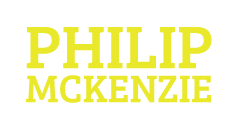Crisis at Uber & the Promise of Stewardship

The past couple of weeks have not been kind to ride sharing company Uber. The news has been dominated with their most recent scandals. First, a scathing blog post by engineer Susan J. Fowler who recounts in detail her year spent at the company. She allows us inside an organization that ignored her complaints of sexual harassment, protected the accused and had no systemic (HR/Management) or cultural norms in place to create an inclusive and safe environment. Second, and most recently, Uber CEO Travis Kalanick was shown on dash cam arguing with a former Uber driver regarding the future of the company. Kalanick when confronted on enacting changes to the Uber fare policy that adversely effected drivers becomes noticeably agitated. In full-blown rage Kalanick proceeds to deflect back on the driver for “placing blame and not being willing to take responsibility”. All of this has placed the company in crisis mode with early investors like Freada Kapor Klein and Mitch Kapor calling for there to be a change in Uber’s “toxic culture”. Uber is no stranger to toxicity. They have consistently raced to the corporate bottom by attempting to sabotage competitor Lyft by requesting fake rides, encouraging the doxxing of Pando founder/editor in chief Sarah Lacey and cutting driver’s wages below minimum wage. Uber has fostered an environment that is sexist, abusive to drivers and seemingly immune to introspection. If Silicon Valley valuations are any indication they have been rewarded for it with an estimated worth of $51 Billion. So what has changed? Have we finally reached the point where this type of leadership (or lack thereof) and culture will be discarded? Are investors only speaking out because they fear a lucrative IPO falling apart before it even gets underway? Or can Uber provide a teachable moment on the type of culture that will thrive in our near future?
Early in its history, Uber aligned itself with the so-called sharing economy. After the economic collapse of 2008 and ensuing financial crisis the sharing economy was branded as having the potential for economic change. Companies like AirBnB, Uber, and others championed a new economy powered by peer-to-peer interactions that would replace the old ways of doing business. The marketing hype was effective but the true adoption of a new economic model was trickier. In 2013, I published a research paper titled “Is Ownership Obsolete? When Sharing Is Not Enough”. The paper was a critique of the so-called sharing economy. My premise was simple. Despite its branding efforts the so-called sharing economy had anchored itself not to peer-to-peer economics but rather to philosophy of ownership. The ideology of ownership is imbued with a system of values and outcomes that are incompatible with a revolutionary peer-to-peer economic system.
I introduced stewardship as a counter to the so-called shared economy and its embrace of ownership values. Stewardship is defined as the shared responsibility of a society to oversee, protect and pass on its critical resources over the course of generations. Late stage capitalism exists in a nexus of wealth inequality, resource mismanagement and impending potential climate disaster. Utopian rhetoric coming out of Silicon Valley has proved to be as empty and craven as the “greed is good” mantra of Wall Street’s Gordon Gekko. Investors and VCs with outsized access to capital and resources have chosen to support the Uber’s of the world because in their estimation the control (ownership) of a given market was most desirable. The opportunity for wealth creation took precedent over an ethical environment for workers, consumers, and employees. Kalanick runs Uber as a zero sum game. There can only be one winner and everyone else is damned. This leadership style and organizational culture is not unique to either Kalanick or Uber. In fact, it is emblematic of most of our companies and institutions. It’s easy to make Kalanick the fall guy. The calls for him to step down have grown larger but his demise, if that were to come, won’t change Uber. Concentrating on the individual actors runs the risk of us missing the systems that operate and influence how we think about culture and those who lead organizations.
Building and maintaining culture in a stewardship economy requires an adherence to a different set of values. Values of collaboration, trust and transparency are all linchpins of a stewardship economy. Building different companies and producing different economic outcomes require a supportive culture and connected value system. Right now we get the business and ensuing results we deserve which I discussed here and here. A culture that supports the values of stewardship is necessary to build the companies and institutions that are vital now and in our near future. A cultural re-imagining is only possible if we are brave enough to push beyond rhetoric into actual practice. A zero sum philosophy should be rejected in favor of non-zero sum outcomes that are inclusive and matrixed in nature. The blind adherence to “shareholder value” and its quarterly focus must cede ground to long-term strategic thinking that is not beholden to speculative capital markets. Empowering leaders who adhere to these values and rewarding organizations that live by them is the most effective way to give rise to stewardship. Organizations that desire to “future proof” themselves need to take a serious look at building a stewardship culture and processes into their organizations or risk becoming a new Uber. Sky-high valuations while under self inflicted crisis due to deep rot on the inside. A short-term perspective if there ever was one.
